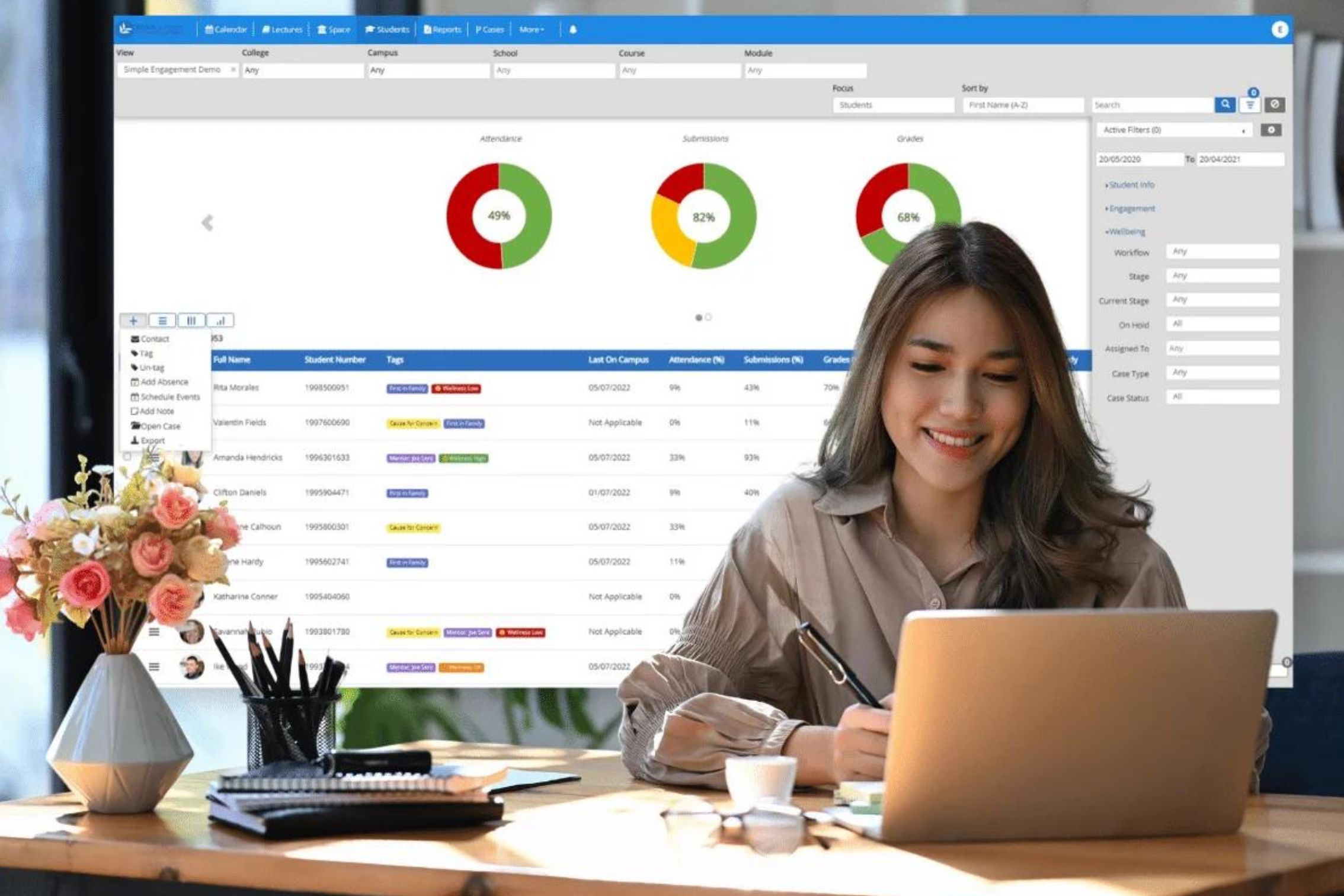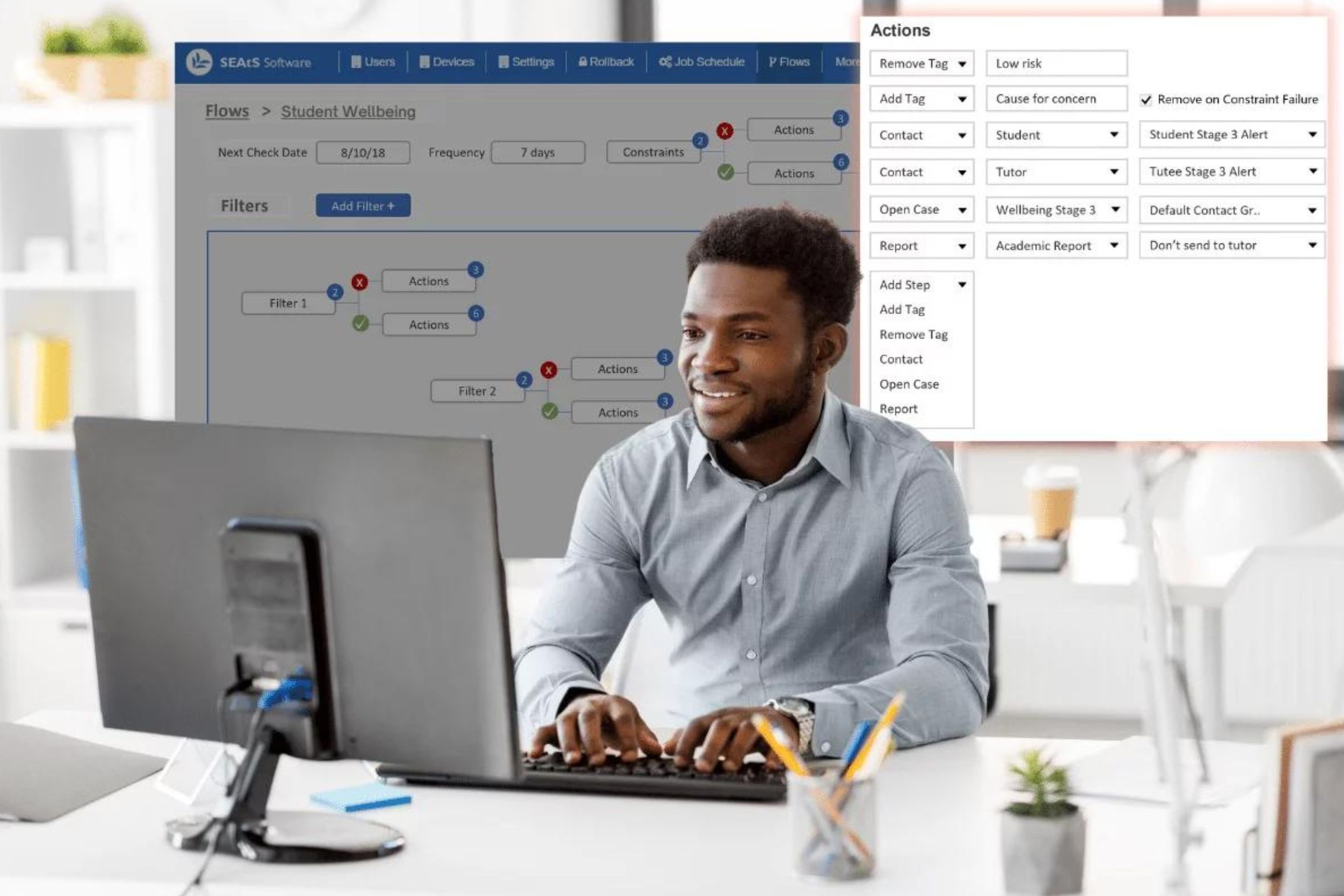One EDUCAUSE review describes it as arguably “the most strategically important leadership position in Higher Ed”, that is, the role of the Chief Data Officer. Along with everything in Higher Ed, this position has gone through massive transformation in recent years. Furthermore, with challenges of digital transformation, data transformation, and data strategy ongoing at most universities, the challenges facing the Chief Data Officer are becoming more complex.
So, what are the Top Challenges facing CDO’s in Higher Education? Firstly, we need to understand why their role is so important.

The Importance of Data Strategy to HEIs
Universities and Higher Education institutions are a fountain of data. They produce vast amounts of important information on students, staff, assessments, research, networks, regulatory compliance and more. As a result, data strategy in HEIs – how they collect, measure, analyse and report data to support institutional goals – is critically important.
As made clear by the EDUCAUSE ‘Top 10 IT Issues for 2023’, utilizing the power of data and analytics to inform institutional decision-making, is no longer optional. It is fundamentally necessary.
”Data driven universities are not institutions that simply have systems for capturing, cleaning, and centralising data... They are institutions that have created a framework for evidence-based action... They are those institutions that do not simply collect information, but act upon it.
Finn Macken‘The 7 Principles of a Data-Driven University’, The Startup.
The Evolving Role of the Chief Data Officer
As a result of the evolving role of data in Higher Education, the role of the Chief Data Officer is evolving too. Some responsibilities of CDOs have been traditionally held by a Chief Information Officer, or Chief Technical Officer. Thus, the boundaries between these traditional roles and new roles such as Chief Data Officer, Chief Digital Officer, Chief Analytics Officer, are often blurred.
Some institutions may fill each of these roles and others may only fill one or two, but each aspire to achieve similar goals. This signifies the significant range of remits and responsibilities that can be covered by the Chief Data Officer. In addition, their role can have a considerable impact on the staff and student experience, academic outcomes, operational efficiency and institutional success. Hence, it’s important to understand the unique challenges facing CDOs and how to overcome them.
The Top Challenges facing CDOs in Higher Ed Today
The challenges faced by CDO’s today largely concern the rapidly evolving space that Higher Education is in. Some of the main challenges facing the Chief Data Officer are:
Institutional Data Strategy
The CDO must take the lead on the institutional approach to data. Consequently, this means they are responsible for the data strategy – ensuring how the institution collects, uses and actions data is aligned with overall institutional goals and objectives. Implementing an effective data strategy means addressing any issues with existing data processes, such as poor data hygiene, and providing the necessary tools for consistent data analysis and reporting. Some modern education success technologies are built for this purpose.

Measuring Data Success and Delivering Value
In addition to the challenge of guiding a university in the right data-driven direction, the CDO must be able to measure the success and effectiveness of their data strategy. Institutions need to see the value of data-informed decision making and for the Chief Data Officer this means turning data into an asset. Good data analysis tools and techniques that can identify trends and produce valuable insights are key to data success.
Siloed Data
Siloed data is an issue many universities and colleges are facing. It presents a significant challenge for any Chief Data Officer attempting to implement an institution-wide data strategy. The ease with which a CDO can unify systems and departments comes down to what kind of data culture the institution has and what tools they use. To maximise data value and success, CDOs need to create a centralised data repository, a single source of truth or integrated dashboard which can shape institutional data culture and provide the actionable insights needed for informed decision making.
Ill-defined Roles and Responsibilities
With a number of different roles covering digital transformation, technology, information, security, data and analytics across Higher Education, it can be a difficult landscape for a CDO to navigate. One of the challenges facing CDOs is establishing exactly what falls within their remit and working closely in collaboration with their C-Suite colleagues to deliver the best results for the institution.
Digital Transformation
The digital transformation of Higher Ed has been ongoing for a number of years now. Some institutions would have begun this journey some time ago, while others only began to feel its urgency during the Covid-19 Pandemic. The term describes how institutions are leveraging technology to drive improvements in areas such as student success, process automation, operational efficiency, and sustainability, among others. It is commonly associated with the now widespread use of learning technologies, digital platforms and data analytics in Higher Ed.
However, digital transformation requires quite a bit of change and disruption. According to EDUCAUSE QuickPoll results released earlier this year on Adapting to Change and Disruption in Higher Education, nearly 70% of institutions are still experiencing considerable change and disruption since the Pandemic began. Thus, presenting a challenging environment to navigate when trying to introduce additional changes and implement new strategies.

Institutional Data Culture
Identified as one of the 8 competencies needed for an effective institutional data analytics program, building an institutional data culture is crucial for CDOs. Furthermore, to instill this culture means overcoming data silos, data literacy issues, and resistance to change among staff and stakeholders. In EDUCAUSE’s recent QuickPoll, it was revealed that respondents are less concerned about their institutions’ inability to adapt to change/disruption than they are about their own department’s ability to. It’s clear that CDOs will need to work with individual departments and units to ensure their data strategy is understood and can be implemented institution wide.
Data Security
The more data that universities collect, manage and use, the more important data privacy and security becomes. A number of Australian universities have been hit with data breaches in recent times, piling pressure on CDOs and CIOs to ensure data is protected. This is especially important in the climate of digital transformation where institutions are implementing many new technologies and software. Therefore, it is crucial that universities prioritise software providers with a strong record and policy of data protection and privacy.








